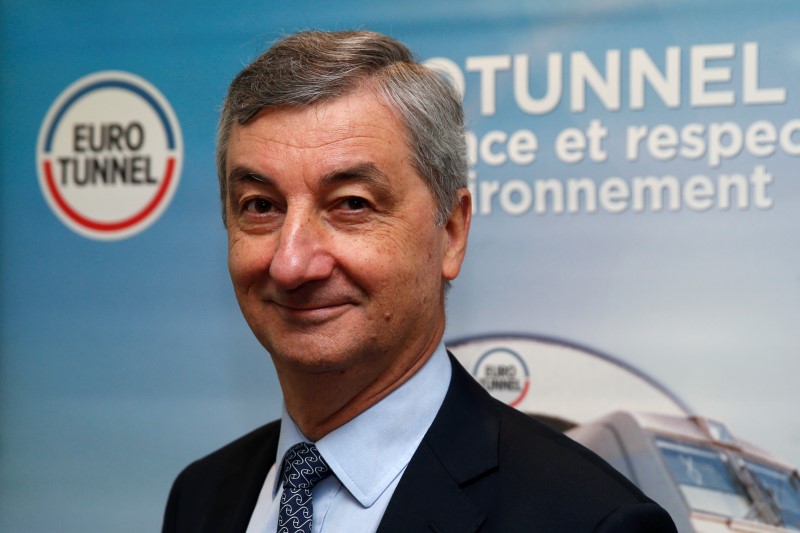By Geert De Clercq
PARIS (Reuters) - Channel Tunnel operator Eurotunnel has agreed to buy investment fund Star Capital's 51 percent stake in their joint venture ElecLink, which is developing an electricity transmission line between Britain and France via the undersea tunnel.
Eurotunnel (PA:GETP) said in a statement on Friday that, once operational, the high-voltage direct-current (HVDC) interconnector will increase the existing interconnection capacity between the two countries by 50 percent.
The transaction is subject to certain closing conditions. Once concluded, Eurotunnel will hold 100 percent of ElecLink.
Using existing tunnel infrastructure, ElecLink will offer 1,000 megawatt (MW) of additional two-way capacity, as much as the generating capacity of a nuclear plant.
Work on the 75 km long cable and the AC-DC (alternate to direct current) convertor stations at both ends of the tunnel will start at the end of this year and the cable is expected to be ready for use in 2019, a Eurotunnel spokeswoman said, adding that the project will cost more than 500 million euros.
ElecLink is set to become the first new France-Britain power connection since the 2,000 MW Interconnexion France-Angleterre (IFA) HVDC line, which was commissioned in 1986.
The 70 km IFA line - including 45 km of subsea cable - runs between Folkestone and Calais and connects the French and British power grids.
Power grid operators National Grid (L:NG) and RTE, a unit of French utility EDF (PA:EDF), also have a project to build the 1,000 MW IFA2 line between Chilling (Portsmouth) and Merville-Franceville (Caen).
Building more interconnectors between countries is a top priority for European Union energy policymakers as these links provide security of supply, reduce the need for back-up capacity and lower electricity prices.
National Grid said on Thursday it was pushing ahead with plans to build more interconectors, including a second one to France and a new one to Denmark, with final investment decisions expected in late 2016 and 2018 respectively.

Last year, France and Spain opened a 65 km line across the Pyrenees, which cost 700 million euros and is set to double French-Spanish power exchange capacity to 2,800 megawatts once it is fully operational.